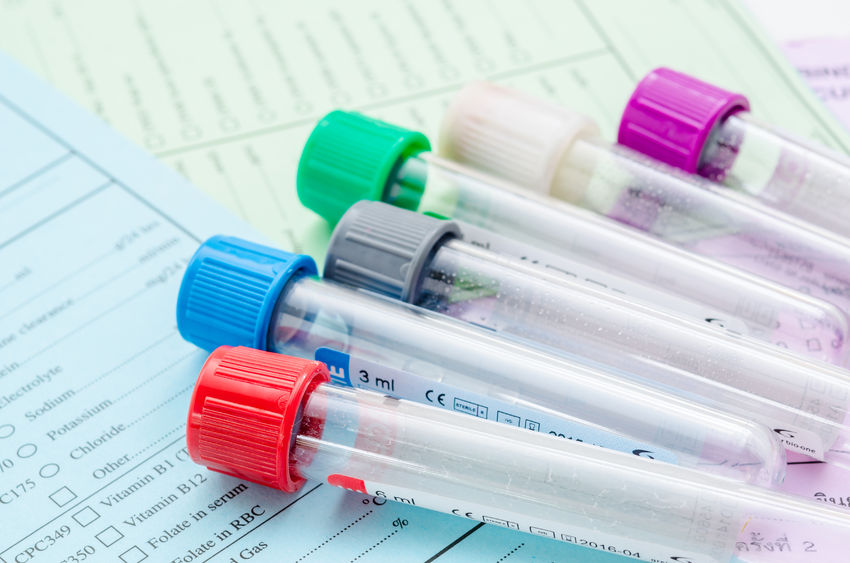
Protein Electrophoresis
Also known as Protein Electrophoresis BloodWhat is this test?
Protein Electrophoresis Blood test is used to measure specific proteins in the blood. This test is used to determine any conditions or diseases that may cause abnormal protein production or loss. In this method, the proteins are separated based on their shape, size, and charge.
What is the importance of protein?
Proteins are known as the building blocks of cells and tissues. They are essential for the proper functioning and growth of the body’s cells and tissues. The blood contains two major types of proteins called albumin and globulin.
Albumin:
- It is the most abundant protein in the blood.
- It is made by the liver and helps in keeping fluid from leaking out of blood vessels.
- It is also useful in carrying enzymes, hormones, and vitamins throughout the body.
Globulins:
- These are major proteins that are produced in the liver.
- These proteins are also produced by the immune system to fight against foreign substances.
- It helps in blood clotting, fighting against infection, and proper liver function.
- These proteins can be divided into 4 categories. They are alpha 1, alpha 2, beta, and gamma globulins.
Alpha-1 globulin:
- High-density lipoprotein (a good type of cholesterol).
Alpha-2 globulin:
- A protein which binds with hemoglobin.
Beta globulin:
- Helps in the transport of iron and fight against infections.
Gamma globulin:
- These proteins are also known as antibodies.
- It prevents and fights against infections.
Why this test is performed?
This test is performed to monitor or diagnose the conditions or diseases that may cause abnormal protein production or loss. This test is recommended to diagnose conditions such as multiple myeloma (blood cancer) or monoclonal gammopathy of unknown significance (MGUS). Your doctor may ask you to perform this test if you experience any signs or symptoms of abnormal protein levels such as weakness, sudden weight loss, back pain, nausea, unusual thirst, constipation, or frequent urination, etc. This test is recommended in individuals with kidney or liver disorders. Your doctor may also advise you to perform this test if you have an abnormal result on a total protein or albumin blood test.
How often this test is performed?
If you have a family history of liver or kidney problems, your doctor may ask you to perform this test on a 6-monthly basis or a yearly basis. Patients with liver or kidney disorders should perform this test on a regular basis as instructed by the doctor.
Test Preparation
Inform your doctor if you are on any medications, have any allergies or underlying medical conditions before your Protein Electrophoresis. Your doctor will give specific instructions depending on your condition on how to prepare for Protein Electrophoresis.
No specific preparation is required for this test. However, if it is performed along with any other blood tests, you may need to fast (not eat or drink) for several hours.
Understanding your test results
If the test results fall in the normal reference range, generally no medical intervention is necessary.
If the test result shows low albumin levels in the blood, it may indicate a problem with the liver or kidney function. Poor nutrition intake or lack of nutrients (malnutrition), or lack of proper absorption of albumin through small intestine due to Chrons disease (a disease condition of intestine) may also show low albumin blood levels. Women who are pregnant may also have a decreased albumin in their blood.
If the test result shows high albumin levels in the blood, it may indicate dehydration.
If the test result shows low alpha 1 globulin levels in the blood, it may indicate a problem with the liver or congenital emphysema (a rare respiratory disorder).
If the test result shows high alpha 1 globulin levels in the blood, it may indicate acute or chronic (severe) inflammatory conditions or diseases.
If the test result shows low alpha 2 globulin levels in the blood, it may indicate a problem with the liver or hemolysis (rupture of red blood cells). Poor nutrition intake or lack of nutrients (malnutrition) may also show low alpha 2 globulin blood levels.
If the test result shows high alpha 2 globulin levels in the blood, it may indicate kidney disease, acute or chronic (severe) inflammatory conditions or diseases.
If the test result shows low beta globulin levels in the blood, it may indicate cirrhosis (liver disorder) or malnutrition (poor nutrition intake or lack of nutrients).
If the test result shows high beta globulin levels in the blood, it may indicate multiple myeloma (blood cancer), monoclonal gammopathy of unknown significance (MGUS), iron deficiency anemia, hypercholesterolemia (high cholesterol levels in the blood).
If the test result shows low gamma globulin levels in the blood, it may indicate genetic immune disorders.
If the test result shows high gamma globulin levels in the blood, it may indicate liver disease or autoimmune disorders such as rheumatoid arthritis (pain and swelling in the joints), lupus, etc. Individuals with acute or chronic infections or who had recently taken immunization may also show high gamma globulin levels in the blood.
Based on the test results, your doctor may advise appropriate medical treatments, lifestyle modifications, or further diagnostic tests.
| Gender | Age groups | Value |
| OTHER | All age groups | 5 waves |